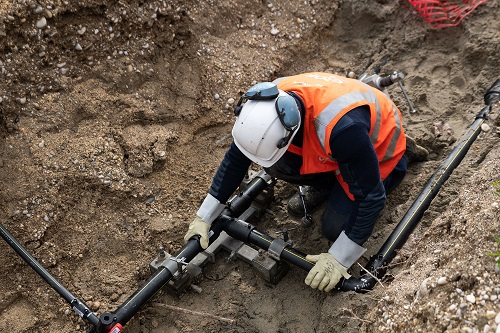Renewable polyolefins
INEOS O&P has developed a range of bio-attributed olefins and polyolefins, based on renewable bio based raw materials that do not compete with human food. All our raw material suppliers are recognised major producers with an ethical charter in place. For example, INEOS O&P Europe uses bio-naphtha made from tall-oil based UPM BioVerno, which replaces fossil based raw materials and contributes to a significant reduction in carbon emissions. Tall oil is a residue of the pulping process and originates from forests.
 Greatview launches Greatview Planet to drive the circular economy
Greatview launches Greatview Planet to drive the circular economy
We were delighted to team up with Greatview Aseptic Packaging and UPM Biofuels to develop a new sustainable packaging solution, Greatview Planet. It gives Greatview a competitive advantage by increasing the share of renewable content using our new bio-attributed, mass-balanced polymers made from tall oil-based bio-naphtha.
INEOS polymer used to create world’s first sustainable gas pipeline
 INEOS produced bio-based high-density polyethylene (HDPE) has been used to create the world’s first fully sustainable gas pipeline. Installed by French gas utility network operator, GRDF, the pipeline only uses the low carbon footprint polymer.
INEOS produced bio-based high-density polyethylene (HDPE) has been used to create the world’s first fully sustainable gas pipeline. Installed by French gas utility network operator, GRDF, the pipeline only uses the low carbon footprint polymer.
The pipeline is made from bio-based, certified HDPE supplied by INEOS Olefins & Polymers Europe. It’s made from wood processing residues from the paper industry, which are transformed into tall oil, a bio-naphtha. The tall oil is turned into bio-ethylene in INEOS Cologne and transported to INEOS’ polymer plant in Lillo, Belgium, where it is used to manufacture bio-based HDPE.
Recycled polyolefins
INEOS O&P Europe is also actively engaged in developing solutions for attributed recycled feedstocks. For example, we plan to develop a state-of-the-art facility in proximity to one of our European petrochemical sites to convert major quantities of plastic waste into pyrolysis-oil. This will enable the plant to supply commercial quantities of recycled attributed polyolefins, which are identical to standard resins made from fossil naphtha, making them suitable for even the most demanding applications such as food contact polymers.
Working with mass balance and attribution
Petrochemical units are complex production facilities that can produce several materials from the same feedstocks simultaneously. To overcome the challenge of applying sustainably-sourced feedstocks through the production process, we apply a combination of two solutions:
- Each ton of feedstock is allocated to the production of specific material (mass balance approach)
- Independent, third party organizations then certify the extent to which fossil fuel-derived feedstocks have been substituted by these sustainably-sourced feedstocks in the new material (attribution)
Our process is certified by multiple organizations such as the International Sustainability and Carbon Certification (or ISCC Plus) and EuCertPlast, which allows our customers to apply the standard most customary in their value chain.
Go to the Safety, Health & Environmental section of this website for copies of our ISCC Plus certificates.
